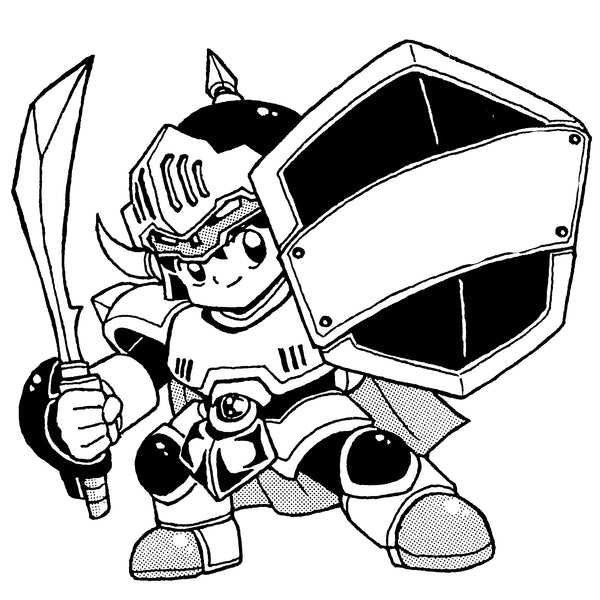Region & Power Guide for Japanese Consoles (Global)
US/Canada (120 V) and EU/UK/AU/NZ/SG (230 V).
Last updated: 29 Aug 2025
Play safely, get a clean picture, and avoid surprises. This page explains how to power and connect NTSC-J consoles outside Japan.
TL;DR
-
US/Canada (120 V): Use a proper regional PSU or a 120→100 V step-down transformer.
-
Germany/EU/UK/AU/SG (230 V): Use a quality 230→100 V step-down transformer or an approved regional PSU.
-
HDMI-only TVs: Use a reputable converter/upscaler for your console’s output.
-
Region lock: Match game region to console region to avoid errors.
Power basics at a glance
United States / Canada
-
Mains: 120 V / 60 Hz · Plug: Type A/B
-
Using JP 100 V gear: Higher than spec
-
Step-down: Recommended for vintage JP PSUs
Germany / EU
-
Mains: 230 V / 50 Hz · Plug: Type C/F
-
Using JP 100 V gear: Much higher than spec
-
Step-down: Yes (quality transformer)
United Kingdom / Ireland
-
Mains: 230 V / 50 Hz · Plug: Type G
-
Using JP 100 V gear: Much higher than spec
-
Step-down: Yes
Australia / New Zealand
-
Mains: 230 V / 50 Hz · Plug: Type I
-
Using JP 100 V gear: Much higher than spec
-
Step-down: Yes
Singapore
-
Mains: 230 V / 50 Hz · Plug: Type G
-
Using JP 100 V gear: Much higher than spec
-
Step-down: Yes
Step-down decision guide
Famicom / Super Famicom
-
Typical JP PSU: 100 V AC
-
Abroad: Over-voltage risk (US 120 V / EU 230 V)
-
Recommendation: Step-down transformer or certified regional PSU
Nintendo 64 (JP)
-
Typical JP PSU: 100 V brick
-
Abroad: Can run warm; voltage-sensitive
-
Recommendation: Step-down or regional PSU
GameCube (DOL-001 / DOL-101)
-
Typical JP PSU: 100 V
-
Abroad: Best with regional PSU; DOL-001 has Digital AV Out
-
Recommendation: Step-down or swap to local PSU
Wii (RVL-001 / 101)
-
Typical JP PSU: 100 V
-
Abroad: May power on at 120 V but not advised long-term
-
Recommendation: Step-down or local Wii PSU
PC Engine / CoreGrafx
-
Typical JP PSU: 100 V
-
Recommendation: Step-down
Sega Mega Drive / Saturn
-
Typical JP PSU: 100 V
-
Recommendation: Step-down or regional PSU
Dreamcast (JP)
-
Typical JP PSU: 100 V
-
Recommendation: Treat as 100 V-only unless PSU is replaced
PlayStation / PlayStation 2 (JP)
-
Typical JP PSU: 100 V (PS2 Slim varies—check label)
-
Recommendation: When unsure, use a step-down
Neo Geo AES / CD
-
Typical JP PSU: varies (voltage/polarity differ)
-
Recommendation: Verify specs; use step-down if using JP PSU
Transformer sizing (rule of thumb)
-
Choose at least 2× the console’s rated watts
-
Place with ventilation; avoid cheap travel converters
Video cables and picture quality
Rule of thumb: RGB/Component > S-Video > Composite.
HDMI-only TV? Use a reputable converter/upscaler and aim for low input lag.
-
AV Famicom (HVC-101) / Original Famicom — AV Famicom: Composite out. Original Famicom: RF only (composite requires a mod).
-
Super Famicom — Composite / S-Video / RGB (JP21/SCART).
-
Nintendo 64 (JP) — Composite / S-Video. RGB not stock on most JP units (mods/adapters exist).
-
GameCube DOL-001 — Composite / S-Video; Component via Digital AV Out (official/third-party). HDMI adapters exist.
-
GameCube DOL-101 — Composite / S-Video; no Digital AV Out (HDMI via analog adapters only).
-
Wii — Composite / S-Video / Component. Simple HDMI adapters (“Wii2HDMI”) are available.
-
PC Engine / CoreGrafx — Composite (model-dependent); RGB via adapter/mod (revision-dependent).
-
Sega Saturn — Composite / S-Video / RGB (JP21/SCART).
-
Dreamcast — Composite; VGA 480p via VGA box → HDMI adapters available.
-
PlayStation (PS1) — Composite / S-Video / RGB.
-
PlayStation 2 — Composite / S-Video / RGB / Component.
-
Neo Geo AES — Composite / RGB.
Region-lock quick matrix
-
Famicom / NES — JP↔US/EU: No (shape + lockout differ).
-
Super Famicom / SNES — JP↔US/EU: Often no (tabs/lockout).
-
Nintendo 64 — JP↔US/EU: No (shell + lockout).
-
GameCube / Wii / PS1 / PS2 / Saturn / Dreamcast — Region-coded discs (JP works with JP).
-
PC Engine / TurboGrafx-16 — JP↔US: No (HuCard pinout differs).
-
Mega Drive / Genesis — Mixed, title-dependent (region code + cart shape).
-
Neo Geo AES — Generally cross-boots; language varies by region/BIOS.
Legal note: This guide describes stock behavior only; it doesn’t cover any modification or bypass methods.
Helpful links
